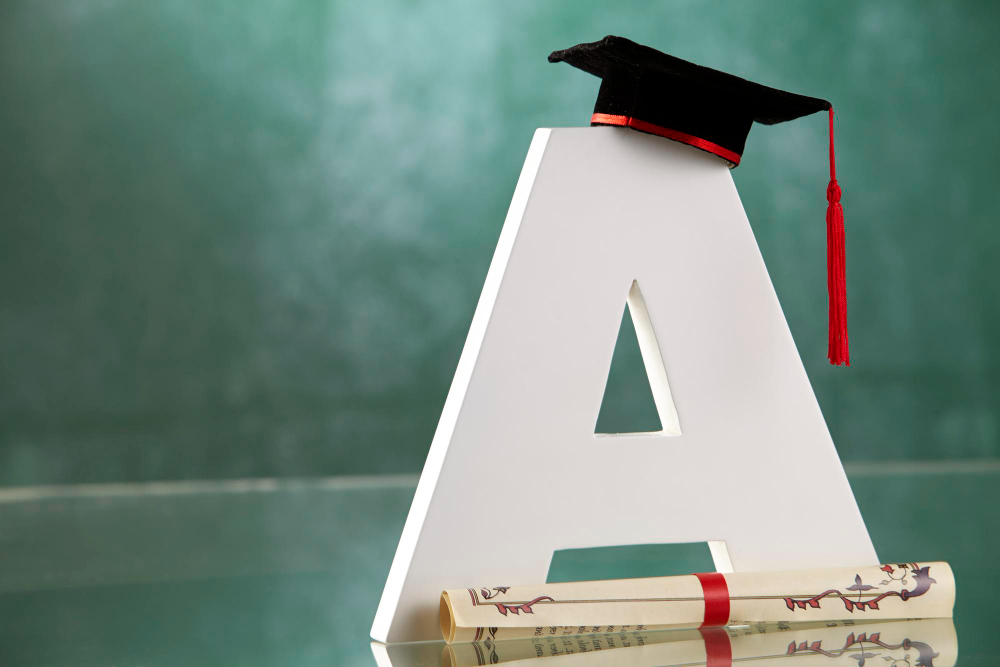Master Your A-Levels with These Proven Study Techniques
A-Levels are a critical phase of your academic life, and to achieve success, it is important to use the correct study methods. With so much to study and pressure of exams, it’s easy to get bogged down. But employing the proper study methods can be of great help. Some simple but effective tips follow to give your A-Level scores a boost.
Start Early and Establish a Routine
One of the best study techniques for A-Levels is to start your revision early. Procrastination can seem like an easy solution, but it usually results in unnecessary stress. By starting early, you can divide the syllabus into smaller chunks and ease the load when exams are near. Having a routine can assist you in better time management, providing you with a daily plan. In this manner, you are able to divide time for each subject and assign time to every topic in order to provide sufficient attention. A proper routine, as part of your study techniques, will keep you away from last-minute studies.
Active Recall: An Effective Strategy
Active recall is one of the best study techniques that has been shown to facilitate better long-term retention. Instead of just re-reading your notes, attempt to recollect the material without referring to them. This method has been proved to reinforce memory and comprehension. For example, after learning a chapter, spend a few minutes jotting down all that you can recall, and then compare your notes. Flashcards or online applications may be used to test yourself. CKM Academy has past papers that you may download from its website and use for practice in active recall, thereby preparing yourself effectively for your exams.
Spaced Repetition: Improving Memory Retention
Spaced repetition is one of the most powerful study methods employed by high-achieving students. This method entails revising the material several times at longer and longer intervals. For instance, you could revise a subject a day after you learn it, then again after a week, and once more after a month. The concept is to space out the revisions so that the information remains in your memory over time. Numerous apps, for example, Anki or Quizlet, can help you to facilitate spaced repetition, thus you will be easier able to follow through on revisions.
Break Up Frequently for Greater Focus
Regular breaks are an intrinsic component of studying efficiently. Inordinate periods of study with little break will tire you, and your attention will begin to wear off. One of the best study techniques is to use the Pomodoro Technique, which involves studying for 25 minutes and then taking a 5-minute break. After four sessions, take a longer break of about 15-30 minutes. This method keeps your mind fresh and focused, making your study time more productive. Breaks are also a great opportunity to stretch, hydrate, or grab a healthy snack, which helps maintain energy levels.
Establish a Well-Organised Study Area
An organised study area is essential in studying effectively. A noisy and untidy atmosphere can distract you and make concentration more difficult. Select a silent area where you can concentrate free from distractions such as your TV or phone. Make sure your study materials—the books, notebooks, and stationery—are at hand. At CKM Academy, we invite you to create an effective study space to enhance focus and productivity. A tidy, well-lit working environment can contribute greatly to your learning experience.
Study with Friends: Collaborative Learning
Although independent study sessions are beneficial, using study techniques with friends can be very rewarding. Collaborative learning enables you to discuss challenging areas, exchange notes, and discuss concepts with one another. This active participation may assist in cementing your learning. In addition, teaching other people is also one of the best study techniques for cementing your knowledge. You can form study groups with classmates or friends and discuss challenging questions. CKM Academy offers customized coaching to support students with challenging subjects, ensuring they receive the guidance they need.
Practice Past Papers: Prepare Like a Pro
The practice of past papers is one of the best study techniques for A-Level preparation. Past papers provide a sense of what to anticipate in the exam and enable you to get used to the format and question types. This approach also enhances time management, as you can practice answering questions under the exam time limit. CKM Academy offers a vast collection of past papers for students, which can be accessed through their website to assist you in preparing well.
Prioritize Tough Subjects First
Every student is different and has their own strengths and weaknesses. For some students, some subjects might be more difficult than others. The trick is to prioritize these tough subjects using study techniques that break them down into smaller, manageable parts. By covering the challenging topics first, you can relieve yourself of stress and leave the simpler topics for later. At CKM Academy, we offer focused coaching in subjects students struggle with so that they are able to obtain the support and guidance they need to excel.
Establish Specific, Achievable Goals
Having specific, measurable goals in place for your study sessions is a critical study skill. Rather than writing, “I will study biology today,” create a specific goal like, “I will finish three chapters of biology and solve 20 practice problems.” Having specific goals gives you direction and keeps you motivated. After you’ve reached a goal, give yourself a short break or reward yourself with something small. The feeling of accomplishment makes you more confident and keeps you focused. CKM Academy assists learners to establish achievable academic objectives in accordance with their learning journey.
Take Care of Your Well-Being
A healthy body helps create a healthy mind. If you wish to be successful in your studies, ensure that you are looking after yourself. Eat well-balanced meals, exercise regularly, and see to it that you are receiving adequate rest. If your physical health is in good shape, your memory and concentration will improve, which will enhance your study techniques. Taking time off for yourself to rest and recharge is also crucial. Stress management techniques like meditation or deep breathing can prevent anxiety from building up, particularly before an exam.
Frequently Asked Questions
When should I start revising for my A-Levels?
It’s best to start early ideally at least 3-6 months before exams. This allows you to break the syllabus into manageable sections, avoid last-minute cramming, and retain information better.
What is active recall, and how does it help?
Active recall is a study technique where you retrieve information from memory without looking at your notes. This strengthens long-term retention and improves understanding. Use flashcards, self-quizzing, or past papers to practice it.
How does spaced repetition work?
Spaced repetition involves reviewing material at increasing intervals (e.g., after 1 day, 1 week, 1 month). This method helps reinforce memory and is more effective than cramming. Apps like Anki or Quizlet can help automate this process.
Ending Remarks
Applying the correct study techniques can be the difference between your A-Level success. Active recall, spaced repetition, or even just taking breaks – all these methods will keep you organised and motivated throughout your revision. CKM Academy offers detailed coaching and past papers to students and assists them in utilising the most effective study techniques to achieve their goals. Find more resources at www.ckmacademy.com and download past papers to aid your preparation.
By following these strategies, you’ll be well on your way to A-Level success!
Image Reference: Freepik
Disclaimer: All trademarks, logos, and brand names are the property of their respective owners. All company, product, and service names used in this website are for identification purposes only. Use of these names, trademarks, and brands does not imply endorsement.






